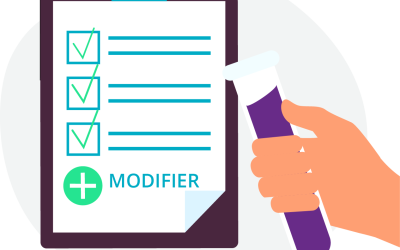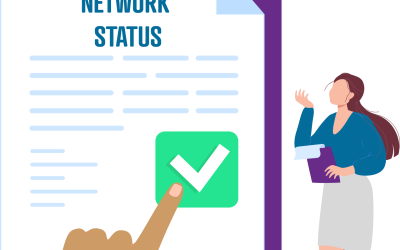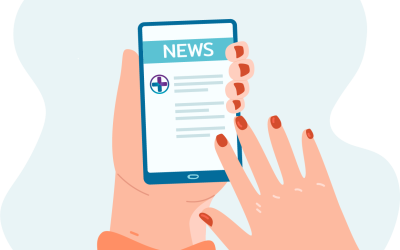Travel Allowance Fee Updates for 2024

Make sure your billing staff or third party billing company know about specimen collection fees and travel allowances for 2024 and other policy updates and reminders.
Executive Summary
CMS issued regulations to codify and modify policies on billing Medicare for specimen collection fees and travel allowances. Per mile travel allowances are coded as (P9603) for trips longer than 20 miles, and reimbursement is $1.13 per mile. Flat rate allowances are coded as (P9604) for trips under 20 miles, and is a flat rate of $1.13 multiplied by 10 and divided by each beneficiary charged with a speciman collection fee. In addition, appropriate place of service codes must be submitted with the HCPCS codes.
Background of Regulation
Medicare Part B pays a specimen collection fee and travel allowance, when medically necessary, for a laboratory technician to draw a specimen from either a nursing home patient or homebound patient under Section 1833(h)(3) of the Social Security Act (the Act). CMS bases payment for these services on the clinical laboratory fee schedule (CLFS).
These regulations can affect labs involved in:
- Mobile phlebotomy
- Molecular testing
- Labs serving nursing homes
- Labs serving assisted living facilities
- Labs offering mobile COVID testing
On January 4, CMS published Medicare Claims Processing Transmittal 11778 regarding the 2024 Medicare travel allowance fees for specimen collection and to clarify various laboratory specimen collection fee policies.
Effective date: January 1, 2024
Implementation date: February, 7 2024
Changes Outlined from the Final Rule
As part of the new regulation—42 C.F.R. §414.523—CMS is codifying and updating the Medicare CLFS travel allowance policies for laboratory specimen collection. The updates reiterate and clarify the parameters for calculating allowables, the patient’s coverage, and the services the technician is performing. The rule provides updates to two separate situations and associated billing codes broken into per mile travel allowance (P9603) and flat rate allowance (P9604).
Per Mile Travel Allowance (P9603)
This applies to situations where the technician travels more than 20 miles round-trip to their destination with the sole service of collecting or drawing specimens. The two circumstances apply when:
1. When the round-trip travel to one location is greater than 20 eligible miles for specimen collection
from one or more beneficiaries; or,
2. When travel is to more than one location, regardless of the number of miles traveled.
No reimbursement is allowed if:
- The technician arrives and no specimens are retrieved
- The technician picks up specimens drawn by a physician or personnel
Services rendered under these parameters in the CY 2024 is $1.13 per mile. To calculate the per-mile travel allowance amount, the laboratory would first calculate the total number of eligible miles that the trained technician traveled – this would be the total number of miles traveled by the trained technician to locations where one or more Medicare beneficiaries received specimen collection services and back to the laboratory where the technician returns the specimen(s) for testing.
This is to be prorated in situations when there are patients that are non-Medicare in the same trip. This means that a pro-rated collection fee is collected in addition to the per mile fee only when a patient covered by Medicare and a patient not covered by Medicare are visited within a single trip. The per mile fee only applies to the patient covered.
Flat Rate Allowance (P9604)
This applies to situations where the technician travels under 20 miles round trip. Reimbursement allowed in CY 2024 is a flat rate of $1.13 multiplied by 10 and divided by the number of beneficiaries for whom a specimen collection fee is paid.
This means that if a technician sees a non-Medicare patient in a trip with Medicare patients, the Medicare patients will have a claim charged individually for travel allowance and the non-Medicare patient’s specimen collection fee is not payable. The non-Medicare patient is then not included in the dividend of total beneficiaries served on the trip.
To bill for the travel allowance, the laboratory would submit one claim for each beneficiary for whom a specimen collection fee is paid by billing HCPCS code P9604.
In addition, laboratories should submit HCPCS modifier LR (informational purposes only) to indicate “round trip” when using HCPCs code P9604 (travel allowance, prorated trip charge).
Coding Requirements Under Travel Allowance Updates
Independent laboratories must submit HCPCS code P9603 (per mile) or P9604 (flat rate) for each patient encounter for places of service:
- 12 – home
- 13 – assisted living facility
- 14 – group home
- 31 – nursing facility
- 32 – domiciliary care
- 33 – custodial care
- 54 – intermediate care facility
Claims will be denied for travel allowance submitted with place of service 81 – independent lab.
STAY UPDATED ON NEWS & BLOGS
Ready to grow your lab?
FOLLOW US
Start Maximizing Your Lab's Revenue
With Laboratory Reimbursement Experts
See why labs across the nation are making the switch from traditional medical billing companies and in-house billing teams. Start earning more and spending less on your lab billing today.
Read Our Latest Posts
Maximizing Lab Billing Efficiency with Laboratory Modifiers
In the realm of medical laboratory billing and coding, laboratory services occupy a critical position. Accurate coding of laboratory tests is not only essential for ensuring proper reimbursement but also plays a pivotal role in maintaining compliance with regulatory...
Advantages of Laboratory Credentialing and Payer Network Status
As a laboratory billing company, we understand that the financial health of laboratories is intrinsically tied to their ability to navigate the complex world of healthcare billing. One key factor that significantly impacts revenue is the process of laboratory...
How Laboratories May Be Impacted During a Government Shutdown
All eyes of the nation are on Washington this week as the looming possibility of a government shutdown is poised to close big parts of the federal government at least temporarily—including many health programs. Congress has until Saturday night, September 30th, to...



